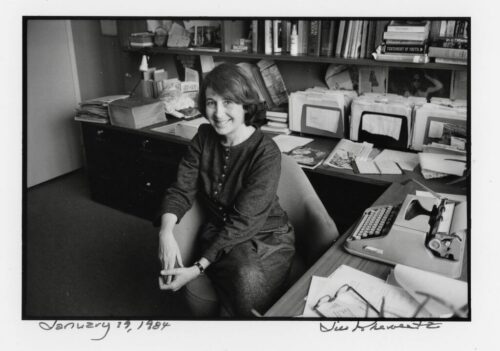Mara Corday, a raven-haired pinup who became a Hollywood starlet in the 1950s running from killer spiders and scorpions in sci-fi thrillers, and who later made a career comeback as a supporting actress opposite Clint Eastwood, died Feb. 9 at her home in Valencia, Calif. She was 95.
The cause was arteriosclerotic cardiovascular disease, according to a death certificate filed with the Los Angeles County Department of Public Health. Her death has not been previously reported.
Marilyn Watts, as Corday was born, grew up in California and was drawn to performance from her earliest recollection. She took her stage name – Mara, a more exotic-sounding variation on her given name, and Corday, a brand of perfume – when she became a showgirl at the age of 17 at a theater on Sunset Boulevard.
She began acting and modeling, landing a contract with Universal-International and appearing in Playboy as one of the magazine’s Playmates of the Month in October 1958.
As an actress, both with Universal and later as a freelancer, Ms. Corday was known for her roles in sci-fi films that captured – in however outlandish and low-budget fashion – Cold War-era anxiety about societal destruction. Some of her films, perhaps in spite of themselves, became cult classics.
In “Tarantula” (1955), opposite John Agar, Ms. Corday ran from a gargantuan hirsute spider that had escaped from a desert laboratory. “The Giant Claw” (1957) put her up against a monster bird flying at supersonic speed. (Ms. Corday was newly pregnant while filming the movie and did not reveal her condition to on-set colleagues for fear that she would not be permitted to keep the part.)
Also in 1957, she acted in “The Black Scorpion,” another of her credits whose titles largely speak for themselves.
Ms. Corday “was regularly menaced by these bugs-from-hell,” a journalist for the Toronto Star wrote in 1994, recapping her career in a “whatever happened to” column. “And somehow, as she screamed, she always managed to put her head back and throw into profile a figure we assume was enhanced by those bras much beloved of ’50s moviemakers.”
Ms. Corday confessed that she outsourced to a stand-in some of the more stomach-turning moments of her horror films – she declined to touch mice and rats, for example – and conceded that many of her movies did not strive for film-festival sophistication.
“You’re at the mercy of the ‘fright,’ the ‘horror,’ or whatever,” she remarked in an interview published in the book “It Came From Horrorwood” by Tom Weaver. “You’re at the mercy of the special effects people, ‘cause if they don’t do a good job, then the whole picture goes in the toilet. For instance, ‘The Giant Claw’!”
Although she attracted more notice for her thriller fare, Ms. Corday also appeared prolifically in westerns, among them “Drums Across the River” (1954) with Audie Murphy, “The Man From Bitter Ridge” (1955) starring Lex Barker, with whom she said she had an offscreen romance, and “Man Without a Star” (1955) featuring Kirk Douglas.
Her favorite part, she said, was as an alluring young Frenchwoman in “So This Is Paris” (1954), starring Tony Curtis, Gloria DeHaven, and Gene Nelson, about romance-minded sailors on leave in the City of Love.
Ms. Corday curtailed her acting career after her marriage in 1957 to fellow actor Richard Long and the birth of their three children, making her last on-screen appearance in that phase of her career in 1961.
She told interviewers that her husband severely restricted her professional opportunities, turning down roles without her knowledge or consent and attempting to “sabotage” her.
“I divorced him ten times the first year of our marriage, getting a lawyer and everything, and thirteen times the second year. He’d plead – literally on his hands and knees, ‘Please forgive me, I don’t know why I did it, give me another chance,’” she said in an interview published in the book “Westerns Women” by Boyd Magers and Michael G. Fitzgerald.
Ms. Corday added that she loved her husband and remained in love with him decades after his death in 1974. She credited Eastwood, who had been a fellow contract actor at Universal early in their professional lives, with reviving her career after she was widowed.
“When my insurance ran out, he put me in ‘The Gauntlet,’” she recalled, referring to the 1977 action thriller. She continued: “When it ran out again, he put me in ‘Sudden Impact,’” released in 1983. She also appeared with Eastwood in “Pink Cadillac” (1989) and “The Rookie” (1990), her two final credits.
Marilyn Joan Watts, the younger of two children, was born in Santa Monica, Calif., on Jan. 3, 1930.
According to an online biography, her family moved frequently during the Depression until her father settled into work as a certified public accountant. A profile published in The Washington Post in 1955 reported that he ran a laundromat and that Corday’s mother was a stenographer. Ms. Corday once said her mother had been a bootlegger.
Ms. Corday recalled whiling away entire days at the cinema, falling in love with movies. She was 17 when she was accepted as a showgirl at the Earl Carroll Theatre in Los Angeles and said that her mother forged a birth certificate to help her pass as 18 – and therefore eligible to perform.
“You go over there and see what you can do, or you’re going back to school and study stenography and learn typing, and stop this wishful thinking,” she recalled her mother saying.
Ms. Corday excelled in her performances and moved on to dancing engagements in Las Vegas and theatrical productions. Modeling opportunities helped raise her profile.
She had her first credited movie role in the seafaring adventure “Sea Tiger” (1952) and appeared the following year in “Money From Home” with Dean Martin and Jerry Lewis.
She had three children, Carey, Valerie, and Greg, but a complete list of survivors could not be confirmed. Efforts to reach her family were not immediately successful.
Ms. Corday’s friendship with Eastwood, whom she likened to a brother, dated to their appearance together in “Tarantula,” in which she had second billing and he had a small uncredited part.
Decades later, their respective levels of prominence reversed, Ms. Corday contributed to one of the most memorable scenes of Eastwood’s career. In “Sudden Impact,” she played the hostage whose life is on the line during the scene in which Eastwood utters his immortal words: “Go ahead. Make my day.”

